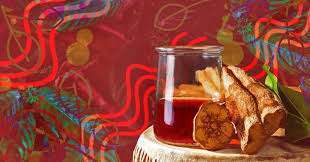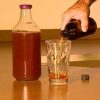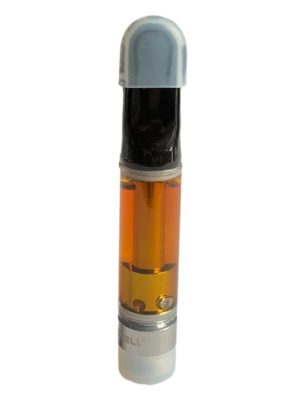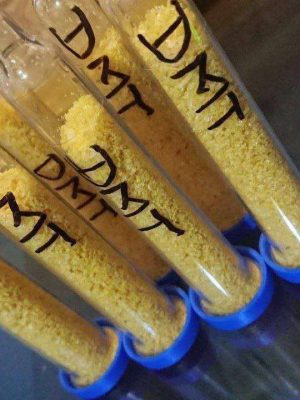Embark on a Profound Spiritual Journey with Ayahuasca – Experience the Power of Sacred Plant Medicine
People prepare ayahuasca, a psychedelic beverage, using the stalks of the Banisteriopsis caapi vine and the leaves of the Psychotria viridis plant. There could be other substances in it.
The word comes from the Quechua language, where wasca (huasca) is a word for vine or rope and aya is a word for soul or ancestors. This is typically translated as “wine of the soul.”
For both medicinal and spiritual purposes, the beverage has long been a favorite in some Amazonian communities. Inducing a “introspective dream-like experience” with recollections and visions, according to Trusted Source
Today, visitors come from all over the world to these locations to partake in it ceremonies.
What effect does ayahuasca have?
Ayahuasca tea contains two plant components that produce psychedelic effects. The P. viridis’s leaves
The effects of ayahuasca include:
feelings of euphoria
hallucinations
fear
paranoia
gastrointestinal symptoms.
During a ceremony, people typically consume one or two drinks Trusted Source. Ceremonies may repeat several nights in a row. Pre-ceremony and postceremony rituals are an important part of the practice.
Modern-day it churches include the Santo Daime and the União do Vegetal (UDV), which has members all over the world.
Although DMT is a schedule I controlled substance in the United States, the Supreme Court have upheld Trusted Source the right for members of the UDV to drink the substance under the Religious Freedom Restoration Act.
What are the health benefits Of Ayahuasca?
Research indicates this may offer several potential health benefits, especially for brain health and emotional well-being. However, more studies are necessary to confirm these findings. Potential benefits include:
Brain health
Both DMT and beta-carbolines, the main psychoactive ingredients in ayahuasca, may protect and restore parts of the brain.
Research Trusted Source indicates that ingesting DMT can lead to a higher production of antistress and antioxidant proteins.
The findings of a 2017 study Trusted Source in mice suggest that harmine, the primary beta-carboline in ayahuasca, may have neuroprotective and cognitive-enhancing effects because it reduces inflammation and oxidative stres. However, there is a need for studies to confirm these results in humans.
This research also links harmine with increased levels of brain-derived neurotrophic factor (BDNF), a protein that aids the survival of nerve cells, or neurons, and plays a role in maintaining connections between them.
Laboratory research Trusted Source reports that harmine and other substances in B. caapi stimulate adult neurogenesis, the generation of neurons.
Mindfulness
According to some studies, ayahuasca may increase a person’s ability to be in a mindful state.
A small study Trusted Source demonstrated that taking ayahuasca once a week for 4 weeks proved as effective as an 8 week mindfulness-based stress reduction (MBSR) course, in terms of increasing a person’s “acceptance.”
In this case, acceptance refers to nonjudgmental attitudes and behaviors, which the researchers measured using a “mindfulness score.”
However, the researchers advise that more studies with larger sample sizes are necessary to confirm these findings.
Other studies Trusted Source also support the use of ayahuasca to improve mindfulness.
Mood and emotions
Ayahuasca may improve the regulation of mood and emotions, and it could also reduce stress and depression.
According to one study Trusted Source, B. caapi preparations demonstrate antidepressant activity, possibly due to the presence of harmine and other substances that contribute to neurogenesis. Neurogenesis is the production of neurons.
Further to this, a 2018 study Trusted Source that involved people who took part in ayahuasca ceremonies found that ratings of depression and stress significantly decreased following the ceremony. These lower levels of depression persisted for 4 weeks after the ceremony.
Other research Trusted Source supports this evidence, suggesting that a single dose of ayahuasca may produce a rapid antidepressant effect in people with treatment-resistant depression. This antidepressant effect persists for several weeks.
Ayahuasca may also help treat anxiety and mood disorders, according to a review Trusted Source of six studies.
Post-traumatic stress disorder (PTSD)
A 2018 research paper Trusted Source suggests that ayahuasca may be beneficial for people with PTSD. It helps with the retrieval of repressed memories, which paves the way for the brain to reprogram or extinguish the associated fear response.
However, more research in this area is necessary to establish the safety and effectiveness of this for people experiencing PTSD.









Bronze –
$$$$